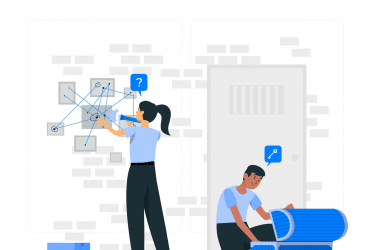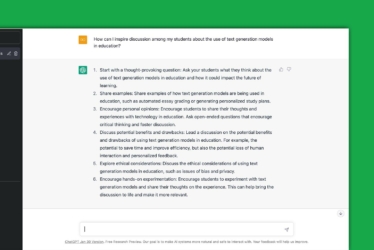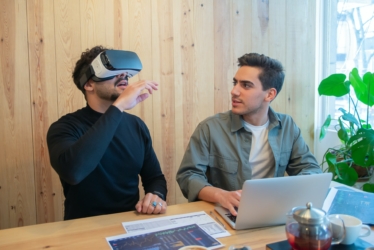Projects
ChitChat: Radio Dabanga, Free Press Unlimited
ChitChat is a chatbot for massive audience engagement. ChitChat will allow Radio Dabanga to run a chatbot that filters incoming messages and talk to the audiences about what they report to Radio Dabanga. This chatbot will be used by Radio Dabanga’s journalists to parse and filter the most important information and visuals as well as prompt the submitter with additional questions to better understand the situation being reported.
Challenge
To report on conflict, journalists need sources, verified information and visuals in order to accurately report what is happening in conflict zones. In the case of Sudan, there is not much (visual) evidence on online and social media available, which is different than for example the conflict in Syria where hours of conflict are recorded and published. In Sudan people share information, photos and videos on more closed of channels.
Radio Dabanga (Free Press Unlimited) provides independent news broadcasting in Sudan to 2.3 million listeners on a daily basis. Since recently, it has opened a WhatsApp number to retrieve reports from local communities and provide critical information in return. After announcing this number on the radio, this resulted in a daily flow of over thousand messages shared with the radio station.
Too many messages to respond to individually. Without people reporting on the bombings in the Darfur Jebel Marra area or sending visuals of demonstrations turning violent, nobody will know these human rights abuses are happening.
Approach
In a first phase a prototype of the Chatbot was developed. In the first months of 2018 this was finished and handed over to Radio Dabanga. The current phase (May 2018 – January 2019) is designed to improve the chatbot in both technical functionalities, workflow and supporting guidelines. Through a combination of development and testing, the chatbot will take shape with the aim to let it filter through chats and communicate with users.
We have developed a rule based chat engine and adapters for various chat platforms, adhering to data responsibility. By prompting and securing digital documentation relating to the conflict in Sudan, Radio Dabanga can report important information more effectively.
Within this project we aim to test whether this chatbot can support Radio Dabanga in the collection of event reports from their listeners. We will also conduct a study on secure communication channels for communities in humanitarian contexts.
Outcome
This project focuses on developing and testing an open-source chatbot application to support Radio Dabanga in direct communication with their listeners. The chatbot will ensure that target populations can reach out through trusted and secure communication channels. The operators of Radio Dabanga will be supported in processing and analysing retrieved information from target populations, and provide relevant information in return.
By investing in a chatbot, we will be able to filter through all conversations and data shared with Radio Dabanga and communicate with users. With the ultimate goal to make the chatbot a tool that will support gathering information from audiences in hard to reach areas in Sudan. Within this project we aim to test whether this chatbot can support Radio Dabanga in the collection of event reports from their listeners. We will also conduct a study on secure communication channels for communities in humanitarian contexts.
Eventually the open source chatbot can be used by other media houses, humanitarian & human rights organisations, which will increase their capacity to communicate with their audiences. This chatbot aims to be a widely used tool that uses audience engagement to demand accountability against perpetrators of the conflict.




